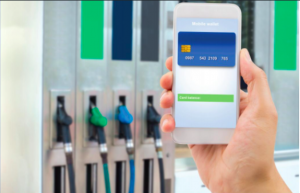Fuel and wash sites embrace digital solutions
 Global market analysts at Accenture recently looked at forecourt and the retail fuel sector to determine leading forces of change in the industry. Key among the discoveries is that digital systems provide the tools necessary to navigate the considerable changes impacting the forecourt and related services, such as car wash.
Global market analysts at Accenture recently looked at forecourt and the retail fuel sector to determine leading forces of change in the industry. Key among the discoveries is that digital systems provide the tools necessary to navigate the considerable changes impacting the forecourt and related services, such as car wash.
Disruption is accelerating
In Fuel Retail Digital Survey 2018, authors Neale Johnson, managing director of Fuel Retail Europe, and Brian Gray, managing director of Retail Fuel North America, found that disruption to the market, from electric vehicles (EV), consumer behaviours and other factors, are accelerating.
Here in Canada, EV sales are moving forward at breakneck speed. In fact, sales have increased by more than 66% every year for the previous five years. These days about 8% of vehicle sales in Canada are electric.
The provinces and federal government are helping drive this change. For example, Quebec uses a quota system to push EV that requires auto dealers to sell a minimum percentage of EV or pay a penalty. British Columbia has recently expanded its zero emission vehicle policy to ensure that no gas-powered vehicles be sold in the province after 2040. Also, The federal government has increased its rebate program for electric vehicles.
Here, opportunities exist to develop more charging sites alongside traditional fueling centres. Canada sports just 5850 EV charging stations, a number that shows fewer than one charging station for every 100-km of road across the country. The uptick is that with chargers taking about 30 minutes to juice electric vehicles, fuel centres have longer periods during which to sell convenience and culinary products.
Commitments to digital investments
In the survey, 80% of respondents said they planned to make significant investments in digital solutions during the next five years. Operators said that these investments would allow them to better engage with customers and improve services. Investments include apps and POS systems to boost speed of service and enhance loyalty. Already we are seeing wash-site operators take up the digital challenge and run with it.
For instance, Ontario-based operators such as Valet Car Wash and Klassic Car Wash have developed their own apps that are available via the App Store, Google Play and other sites. Users can load cash, activate washes, earn loyalty bonuses and explore other features. In the App store alone, there are more than 100 wash and fuel site operators, including Shell, McEwan Oil and Co-Op.
According to Mike Black of Valet Car Wash, Canada is more advanced than the U.S. when it comes to digital payment systems. He says that in the U.S. the wash business is 70% cash, with operators using coin boxes, while sites in Canada are exploring contactless payment, cards and apps.
At fueling sites, the coming fifth generation of Internet connectivity (5G) will bring huge enhancements to marketing and convenience at the pumps. Already auto manufacturers, such as Honda and Land Rover, have are installing features so that vehicles can facilitate payments for gas and other items. In Canada, our systems are not prepped for this activity and gas apps, including Shell and others, are not ready yet to perform purchase functions at the pumps. With 5G, however, everything is on the table, such as beacon technology delivering marketing messages to onboard visual displays and digital payment portals effortlessly taking payment.
Analytics enhances performance
With the increase in digital investment comes the ability to enhance analysis. Operators are now better able to predict customer behaviour thanks to sales tracking made easier through apps and POS tools. In wash systems, for instance, sensors now measure and work with electronic dispensers to more accurately deliver chemicals and water to the wash process. Operators are able to examine every stage of the system and fine tune for performance that can increase profits, as well as customer satisfaction.
At the forecourt, digital analytics creates greater efficiency in fuel delivery, margin control and staffing. And, the tools are all accessible remotely, allowing management to review and input from anywhere at anytime.
HIGHLIGHTS:
Digital maturity is the goal
The report emphasizes the need to continue investments in skills training, automation and partnerships. The authors say these are essential for operators to realize their digital aspirations. Already 42% of fuel operators report they are digital savvy and have launched systems to take advantage of the shifts in technology.
Better foundations needed to realize digital value
“Fuel retailers may only be at the start of their journey, but they know where they are headed,” says Accenture’s Brian Gray, adding that 75% of retailers surveyed saw digital systems as a major benefit to their business.
